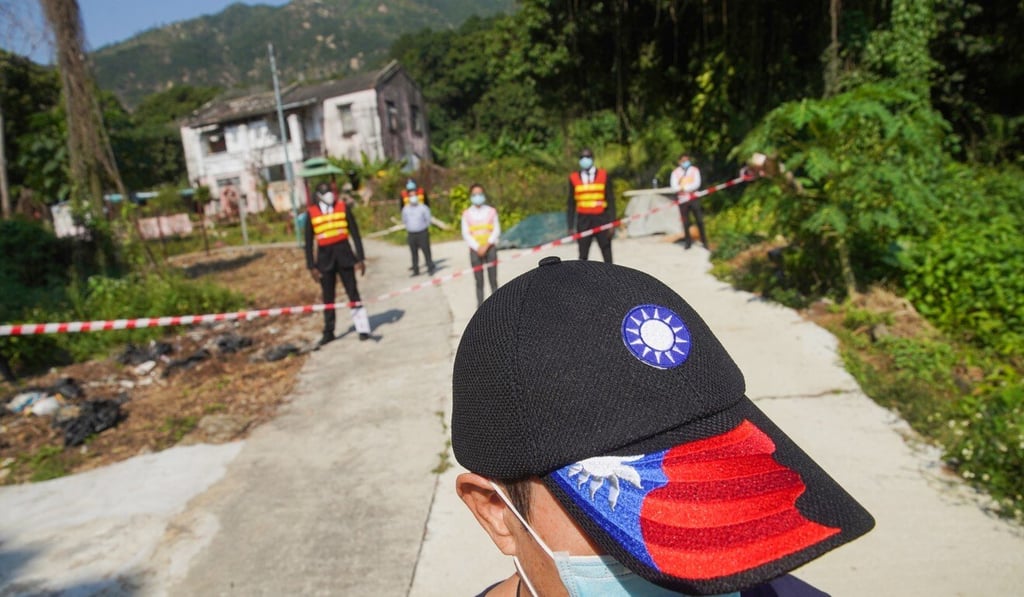Scuffles break out between Taiwan supporters and security guards in famed Hong Kong park on ‘Double Tenth Day’
- The event serves as Taiwan’s national holiday and marks a revolt in Hubei that led to the establishment of the Republic of China
- But group trying to access a revolutionary base inside Sun Yat-sen Garden are blocked by men hired by mainland Chinese owner of site

An attempt by a handful of Hong Kong residents to mark Taiwan’s national holiday at a former revolutionary base in the New Territories ended in pushing and shoving matches with a bevy of security guards who had cordoned off the area on Saturday.
The scuffles occurred outside Hung Lau, or Red House, the most important location in the city for marking the so-called Double Tenth Day, which celebrates an anti-imperial revolt on mainland China and is a national holiday in Taiwan, where the Kuomintang (KMT) fled and established self-rule after losing the civil war to the communists in 1949.

03:59
Silent Double Tenth Day in Hong Kong under national security law
About a dozen plain-clothes policemen were checking the ID of visitors entering Sun Yat-sen Garden in Tuen Mun, where the more than century old structure is located. When a small number of KMT sympathisers tried to approach the building, they found the area cordoned off by the security guards, all dressed in identical dark business suits.
The guards, who said they represented the mainland Chinese owner, confronted several visitors who had crossed the tape line.
“I’ve entered the site via this pathway for more than 30 years,” said a man in his 60s who called himself William. “Who are you? If you cannot prove your identity, you are discharging duties illegally.”
